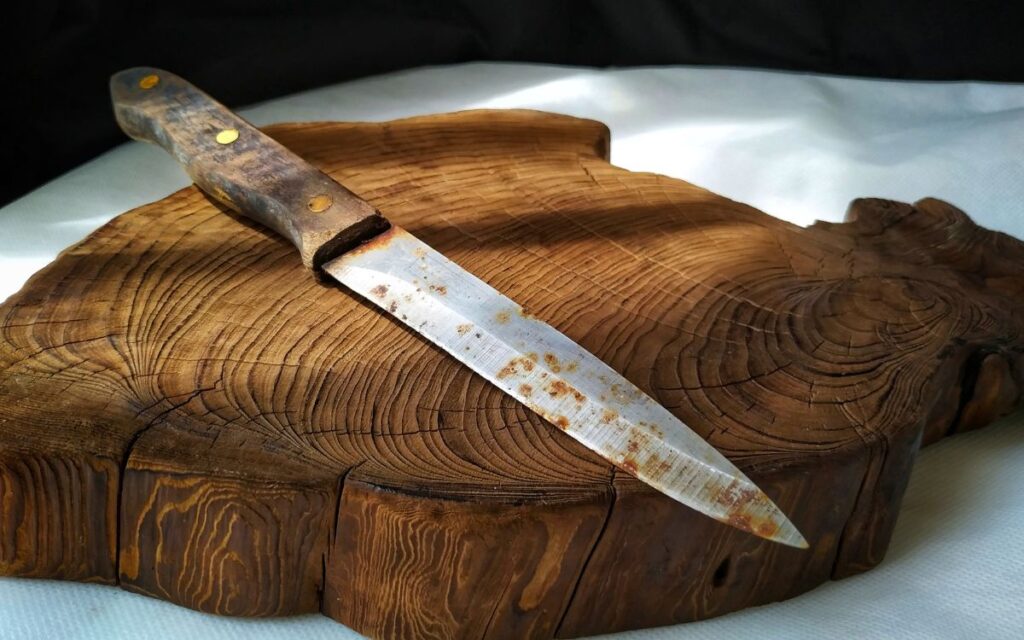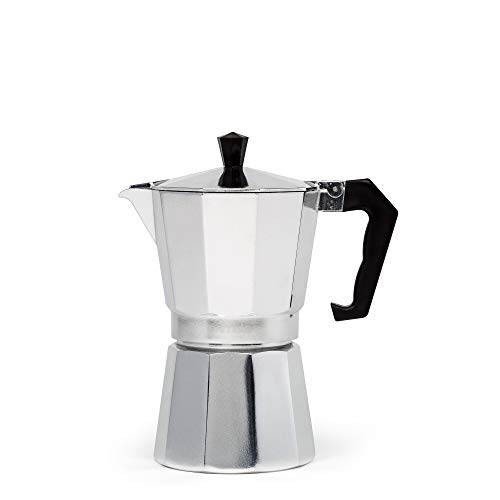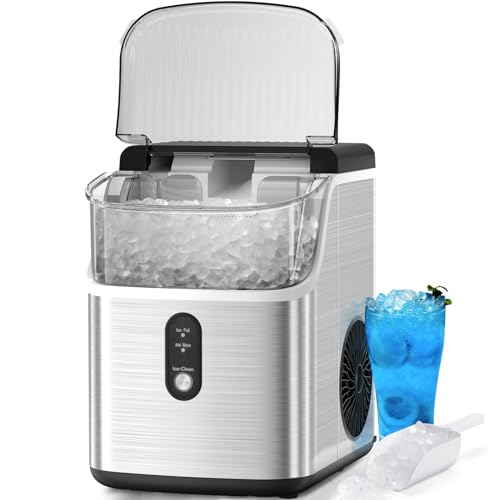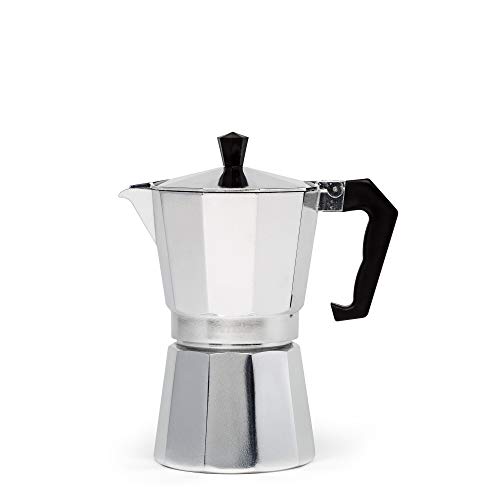“How To Get Rust Off Knives” is a common concern for cooking enthusiasts, chefs, and pretty much anyone who uses knives on a regular basis. Rust can quickly degrade the quality of your knives, making them less effective and potentially dangerous to use. It’s a problem that, if left unchecked, can lead to unnecessary expenses in replacing your kitchen cutlery.
Yet, with a few simple methods and preventative measures, you can extend the lifespan of your knives significantly. Understanding how to remove rust from your knives not only helps maintain their functionality, but also ensures they remain safe to use.
In the following sections, we will delve into step-by-step instructions on how to accomplish this. We will also share tips on how to prevent rust from forming in the first place. Whether you’re a culinary expert or a home cook, these insights will be valuable in preserving the integrity of your kitchen equipment.
How To Get Rust Off Knives
Before we dive into the actual process, it’s essential to understand what causes rust on knives. In simple terms, rust is a form of iron oxide that occurs when iron (or an alloy containing iron, like steel) is exposed to moisture and oxygen over a long period.
This is why kitchen knives, often subject to water and air, are prone to rust. The following guide will provide you with simple, yet effective strategies to remove rust and help you maintain your knives in the best condition.
Using Baking Soda
One of the most common household items that can be used for rust removal is baking soda. This inexpensive ingredient works wonders for rust treatment. To start, create a paste by mixing baking soda with a small amount of water. Apply this paste directly to the rusted area of your knife.
Leave the paste to sit for about 15 minutes. This will give it ample time to break down the rust. After the designated time, scrub the paste using a toothbrush or a scouring pad. Once all the rust spots have been scrubbed off, rinse the knife with warm water and dry it immediately to prevent new rust from forming.
Vinegar: A Natural Rust Remover
Another natural method for removing rust from your knives involves using vinegar, a common staple in many kitchens. Vinegar’s acidic nature makes it an effective agent for rust removal. Submerge your rusted knife in vinegar and leave it for approximately 5 hours.
After the knife has soaked, use a soft scrubbing pad to clean off the rust. It’s important to be gentle during this process to avoid causing any damage to the knife. Once the rust has been removed, rinse the knife thoroughly and dry it immediately.
Preventing Rust
Now that you know how to remove rust, it’s equally important to understand how to prevent it. One of the best methods for rust prevention is proper knife maintenance. Always clean your knives immediately after use. Dry them thoroughly and store them in a dry place.
Avoiding long-term exposure to moisture will significantly reduce the likelihood of rust forming. Additionally, consider applying mineral oil to your knives regularly. This helps to create a barrier against moisture, further ensuring your knives stay rust-free.
See more: How To Sharpen Ceramic Knives
FAQs
It’s worth noting that while the process of rust removal can be straightforward, some situations may require more nuanced approaches. Rusted knives that haven’t been treated for an extended period, or those with more delicate or complex designs, might demand additional care or professional help.
Can I use steel wool to remove rust from my knives?

Steel wool can indeed be used to remove rust from knives, but it’s not always the best method. While it can be effective, it is important to note that steel wool is coarse and can potentially scratch the surface of your knives, leading to potential damage.
To ensure the longevity of your cutlery, it is highly recommended to opt for finer materials, such as a gentle toothbrush or a soft scrubbing pad, when dealing with rust removal. These alternatives provide a safer option, minimizing the risk of unintentional scratches.
However, in cases where rust is widespread or particularly stubborn, it may be wise to seek professional help. This will not only help preserve the condition of your knives but also prevent any accidental damage that could occur during the rust removal process. Remember, taking the necessary precautions when dealing with rust will ensure the longevity and functionality of your cherished cutlery.
What type of vinegar is best for rust removal?
Most types of vinegar, including apple cider vinegar, red wine vinegar, and white vinegar, can be effective in removing rust due to their acidic properties. However, white vinegar is often recommended for rust removal because of its higher acidity level compared to other types.
This higher acidity makes it more effective at breaking down rust and restoring items to their original condition. Plus, white vinegar is typically cheaper and more readily available than other varieties, making it a convenient and cost-effective solution for rust removal.
Is there a special type of oil for preventing rust on knives?
While there isn’t a specific oil solely for preventing rust on knives, mineral oil is widely recommended. This oil is safe for food products, which makes it ideal for maintaining kitchen cutlery. Applying mineral oil to your knives creates a barrier that can prevent moisture, hence reducing the likelihood of rust. Remember to apply the oil after each cleaning and drying process for best results.
Can all types of knives be treated using the methods described above?
Yes, the methods described above can be used to effectively treat rust on most types of knives made from iron-containing materials. By following these techniques, you can restore the sharpness and appearance of your knives.
However, it is important to note that if your knives are antique, very expensive, or have special finishes, it may be wise to seek professional advice. Consulting with a professional restorer or conservator who specializes in knife restoration can provide valuable insights and guidance tailored to your specific knife.
They possess the expertise and knowledge to recommend safe and effective methods that will preserve the integrity and value of your cherished blades. Taking this extra step ensures that you receive the best care for your unique knives, giving you peace of mind and confidence in the restoration process.
Final Thought
Rusted knives don’t have to be a cause for frustration. With some patience and the right materials, you can bring them back to life in no time. Remember, the key is to act promptly when you notice rust forming. The longer you wait, the harder it will be to remove and the more damage will be done to your knives.
Staying proactive with your knife maintenance can go a long way. Clean and dry your knives immediately after use and apply a layer of mineral oil to create a barrier against moisture. Storing them in a dry place will also significantly reduce the likelihood of rust forming.
It’s not just about removing rust, it’s also about preventing it. The methods mentioned in this guide are simple, cost-effective, and do not require any professional tools. With these tips, you can ensure the longevity of your cutlery and keep them in optimal condition.
Always remember, if your knives are particularly valuable or have intricate designs, it is advisable to seek professional advice before attempting rust removal. A professional restorer can provide expert guidance and ensure the best care for your knives. Don’t let rust compromise the quality of your cutlery – act now and keep your knives rust-free.





